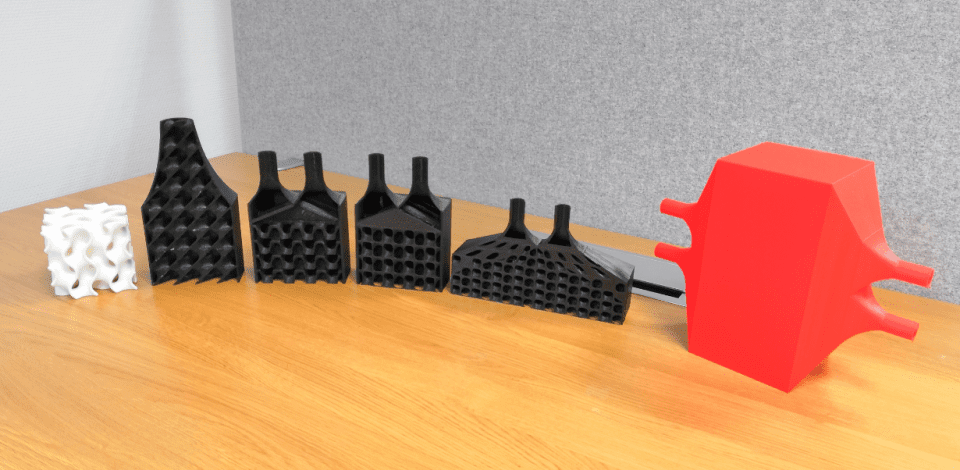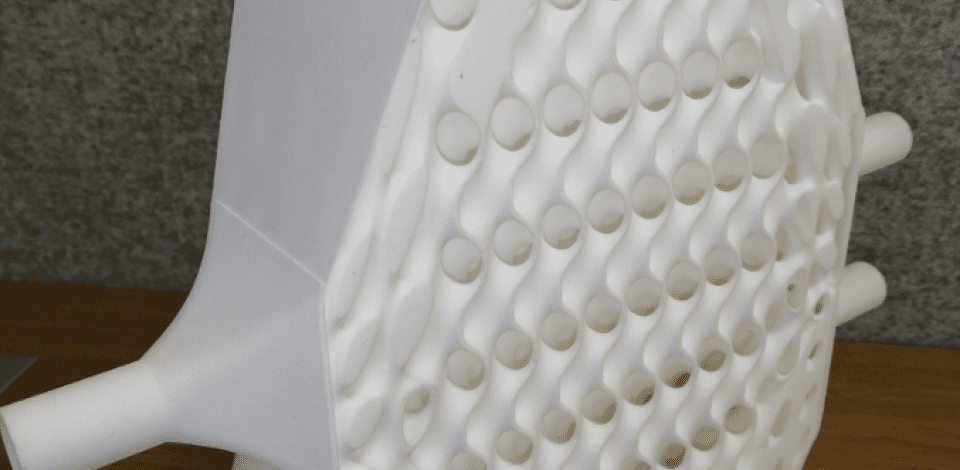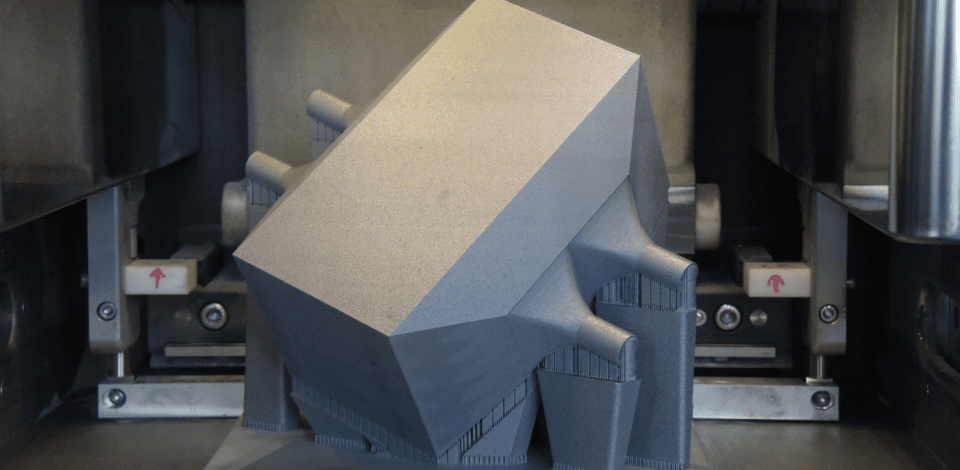Des collaborations efficientes avec des acteurs locaux de premier plan
Creating win-win partnerships is one of the Group’s core strategies and an integral part of TotalEnergies’s work methods. Building relations and developing exchanges is also one of the strengths of the CSTJF and its players, from local to international scale.
Much more than simply sharing the costs of research, the wealth of our partnerships encompasses the opportunity to develop our local presence, access new and emerging technologies and know-how that we don’t yet master inhouse, to enhance the skills of our teams at TotalEnergies. Our projects are co-constructed and as for our partners, they develop their own strategic vision by using the resources, data and techniques available in our center of excellence or scientific and technical research.
Our long-standing relationships, developed with private or academic institutions — or very often, both — give these players the opportunity of more direct access to our market and to our internationally-renowned experts. So, what’s the advantage? Ensuring effective and shared development and a robust geographical presence.
Such partnerships are the flagship of the Group’s research and development (R&D) and have a positive impact on a wide range of expertise: from the energy transition to 3D printing, to the complex modeling of fluid low in microporous media...
RESEARCH PROGRAMS DEVELOPED WITH PROACTIVE PARTNERS
The CSTJF works on several research programs with local partners. Here are some representative examples:
TotalEnergies & the TEEN chair: our local commitment to the energy and environment transition
As part of its research and development programs, TotalEnergies is proactively involved right at the heart of the issues surrounding the production of a more affordable, cleaner energy, accessible to as many people as possible. Thanks to the work done by its societal R&D team, the Group is working on the continuous improvement of its activities, particularly owing to the anticipation, evaluation and management of non-technical risks and grievances related to operations.
In this context, TotalEnergies's societal R&D team based at the CSTJF, is a stakeholder in the actions taken by the TEEN (Territories in the Energy and Environment Transitions) Chair to think about the role companies and local players can play in the energy transition.
Created in 2018 by the Université de Pau et des Pays de l’Adour, in partnership with the Pau Béarn Pyrénées conurbation, the Compagnie d’Aménagement des Coteaux de Gascogne, the CNRS and TotalEnergies E&P R&D, the TEEN Chair is designed to analyze the socio-political challenges in a given area and provide advice on a clear location strategy for the projects in which it is involved.
It is intended as a relay for expertise and puts forward hard-and-fast scenarios to ensure that each local project gets off to the best possible start.
Among the actions taken in partnership with the TEEN Chair, the Societal team at the CSTJF hosted the first conference in 2020 on the energy transition theme. The event was attended by public and private players and took the form of an informal debate on the challenges these transitions raise for companies and local territories.
Working with the TEEN Chair, the Societal team is seeking to ramp up exchanges and actions to develop future avenues for partnerships with local players.
- Find out more from the UPPA’s perspective.
3D printing: Innovating through the expertise of local players
Since 2018, the Jean Féger Scientific and Technical Center (CSTJF) has been conducting research on the 3D printing of heat exchangers* in close collaboration with its regional partners. This research strategy not only showcases expertise and local action, but also significantly reduces the costs generated by studies on additive manufacturing (AM).
Through a series of numerical tests, the R&D teams at the CSTJF and their partners are working on a new generation of heat exchangers, whose shape is the result of mathematical formulas to improve heat exchange: minimal surfaces starting with the Schwarz Diamond (Schwarz D) surface.
The CSTJF has an “innovation Booster” in Pau to lead this project and which operates in “maker” mode, using FDM (Fused Deposition Modeling) printers to rapidly prototype PLA (Poly Lactic Acid, biosourced and bio-compostable materials) to iterate and validate the heat exchanger design.
The teams also relied on the specific competencies of their local partners:
- Chloé (a university department working on flow in porous media, funded by TotalEnergies) to produce the design and create the entire exchanger based on mathematical Schwarz D formulas, using the Matlab and Comsol software applications;
- The IUT in Tarbes, to print the exchanger using laser sintering on a “powder bed”. This produces a Polyamid exchanger to validate the homogeneity of the numerical model — a crucial step before the more costly manufacturing of the metal exchanger;
- The ENIT (The National Engineers’ School in Tarbes), for the aluminum printing that gives better heat transfer;
- The Pau IUT (UPPA) – Heat and Energy engineering to run tests on a test bed.
Such partnerships contribute to modernizing heat exchangers through 3D printing and to reduce the weight while maximizing efficiency. If the tests prove conclusive, TotalEnergies would be able to use less energy and thereby reduce its CO2 emissions.
*A heat exchanger is a system whereby heat energy from one fluid is transferred to another without them mixing.
-

3D prints made with the CSTJF Booster 3D printings made at the CSTJF Booster -

Polyamide heat exchanger model, cross-sectional view Polyamide heat exchanger model, cross-sectional view -

Aluminum heat exchanger in its printing chamber Aluminum heat exchanger in its printing chamber
NETWORKS TO STRUCTURE THE LOCAL AREA
The local history of the TotalEnergies group has been closely linked to that of the local area for over 50 years. Networks have therefore built up around its technological and innovation activity with the determination to showcase partnerships and develop local appeal.
TECHNOPOLE HÉLIOPARC - www.helioparc.fr
“Created 33 years ago on the initiative of local communities and the TotalEnergies group, through innovation, the Hélioparc technohub contributes to the economic development of Pau, its conurbation and the Béarn region.
From its technological campus, home to its different structures — 3 business incubators, three theme-based start-up incubators, an accelerator and a student incubator — and leading players in innovation, the Hélioparc’s reach extends across the entire conurbation, both in leading avenues of excellence or coaching young and innovative companies.
At the heart of a network including the university of Pau, the grandes écoles, the main institutions, the CSTJF and the large industrial groups, chambers of commerce, players in innovation and funding for innovation, Hélioparc works to create and develop new and innovative activities.
Having been awarded the technohub label by RETIS, the French network of innovation experts, Hélioparc has built an innovative and high-performance territorial ecosystem that fosters cross-sector fertilization, and scientific and technical exchanges that reflect activity in the local area: geosciences and petroleum engineering, materials, energy and environment and digital technologies.
Identifying and assessing innovative technologies, accompanying start-ups, structuring and leading different sectors, and promoting the local area and activities are the main missions carried out by Hélioparc.
Hélioparc’s 14-strong team organizes the site to house over 35 startups and 160 innovative companies, i.e. 1,500 high-level jobs, and unites over 350 companies in its different networks throughout the Béarn region.”
Marc CABANE, President
POLE AVENIA - www.pole-avenia.com
“For 10 years now, the AVENIA cluster has been federating the leading players in subsurface industries (major groups, SME, start-ups, institutions and academics) in Southwest France and even nationwide.
TotalEnergies and the AVENIA cluster created a strong relationship right from the word go. Many TotalEnergies employees have invested their time and effort in the cluster, in particular by presiding the innovation clubs and sitting on our committee of experts. Alain Lehner put in a lot of work for the cluster on behalf of SEMM LOGGING when he took over as president of the cluster from 2013 to 2016.
Initially present on the innovation aspect in R&D, our actions developed among other things, to tend toward international issues conducted with Total Regional Development (TDR) or more recently, as part of an innovation culture with the Booster.
Moreover, the AVENIA cluster and TotalEnergies work together to develop the appeal of the local area by welcoming foreign delegations, such as the Senegalese delegation in 2019 for the GeoEnergyDays, an international trade fair and exhibition organized by the cluster. The TotalEnergies group has a high attendance rate at all the events organized by the cluster.”
Jean-Loup MINEBOIS, President
CHEMPARC - www.chemparc.com
“The CHEMPARC Public Interest Group is a regional economic catalyst based in the Lacq basin. It works in synergy with the neighboring sectors of the Pays de l’Adour.
CHEMPARC federates all the socioeconomic partners: The French State, local communities, industrialists and service providers, the Pau Béarn and Bayonne Pays Basque CCI, players from research and training, and employee labor unions.
The PIG is designed to promote the industrial basin, prospecting for and accompanying projects for businesses setting up in the area, in close collaboration with Total Regional Development and SOBEGI for the INDUSACQ and CHEM’POLE64 sites.
CHEMPARC also ensures the management of the R&D, technological transfer and industrial application platform CHEMSTART-UP in the chemistry, composite materials and energy transition sector, the owner being the Lacq-Orthez federation of municipalities.
The platform comprises four laboratory buildings and industrial pilot halls measuring 5,000 m² on a 5-hectare site. It houses six companies and 65 researchers or laboratory operators. A project is underway to extend the platform over a further 3,500 m² to accommodate three new structures and increase the number of employees on site to around 100.”
Pierre NERGUARARIAN, President
APESA - www.apesa.fr
“The APESA is an association that was created around 25 years ago by a group of socioeconomic players including the TotalEnergies group (Elf Aquitaine at the time), who held the firm belief that economic development could not take place without the serious consideration of environmental issues.
Innovation is in the APESA’s genes: from the drive to create the association to explore future avenues to the ramp-up of its research activities, it guides its initiatives to accompany and plan ahead for technological and societal developments.
Its relations with the TotalEnergies group have developed in tandem with the development of its different themes: SSE prevention, biomass valorization, eco-innovation and the creation of societal value.
With 45 members in the association, the APESA is now a reference technological center in the Nouvelle-Aquitaine region, in providing advice and guidance to accompany the ecological transition.”
Benoît De GUILLEBON, President

